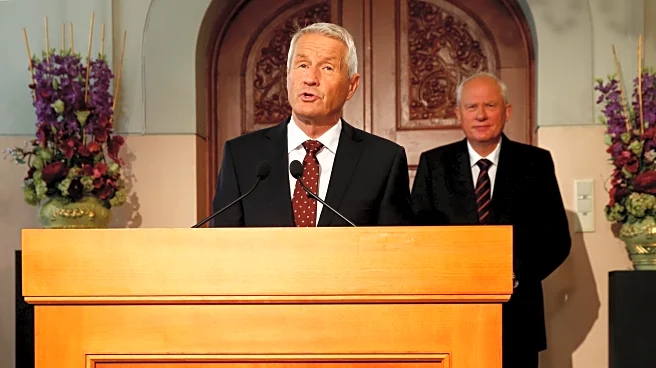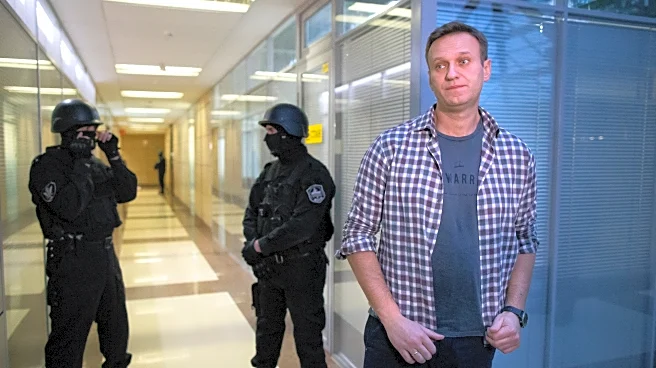Rapid Read • 9 min read
The United Nations-backed Integrated Food Security Phase Classification (IPC) has officially declared that parts of Gaza, including Gaza City, are experiencing famine. This declaration comes amidst a prolonged blockade by Israel, which has restricted the entry of food and other essential aid into the region since the onset of conflict nearly two years ago. Despite recent international pressure leading to an increase in aid deliveries, with approximately 300 trucks entering Gaza daily, many of these supplies are intercepted before reaching their intended destinations. The situation is further complicated by limited access routes and delays at Israeli checkpoints. The Israeli Coordinator of Government Activities in the Territories has criticized the IPC's findings, claiming they are based on unreliable sources and overlook Israel's humanitarian efforts.
AD
The declaration of famine in Gaza highlights a severe humanitarian crisis with significant implications for the region and international relations. The blockade and restricted aid access have exacerbated food insecurity, affecting over half a million people. This situation poses a moral and ethical challenge to the international community, which is urged to respond with increased humanitarian assistance and diplomatic efforts to alleviate the crisis. The ongoing conflict and blockade have strained relations between Israel and various international bodies, potentially impacting geopolitical dynamics in the Middle East. The humanitarian crisis also underscores the need for sustainable solutions to address the root causes of the conflict and ensure the well-being of affected populations.
The international community is likely to increase pressure on Israel to allow more comprehensive humanitarian access to Gaza. Diplomatic efforts may intensify to negotiate a ceasefire and facilitate the delivery of aid. Humanitarian organizations are expected to continue advocating for increased support and resources to address the immediate needs of those affected by the famine. The situation may also prompt discussions on long-term strategies to prevent similar crises in the future, including addressing the underlying political and economic issues contributing to the conflict.
The famine in Gaza raises broader ethical and legal questions about the responsibilities of occupying powers and the international community in ensuring humanitarian access during conflicts. It also highlights the challenges faced by humanitarian organizations in navigating complex political landscapes to deliver aid. The crisis may lead to increased scrutiny of international aid mechanisms and calls for reforms to enhance their effectiveness and impartiality. Additionally, the situation in Gaza could influence public opinion and advocacy efforts worldwide, potentially leading to increased support for humanitarian initiatives and conflict resolution efforts.
AD
More Stories You Might Enjoy











